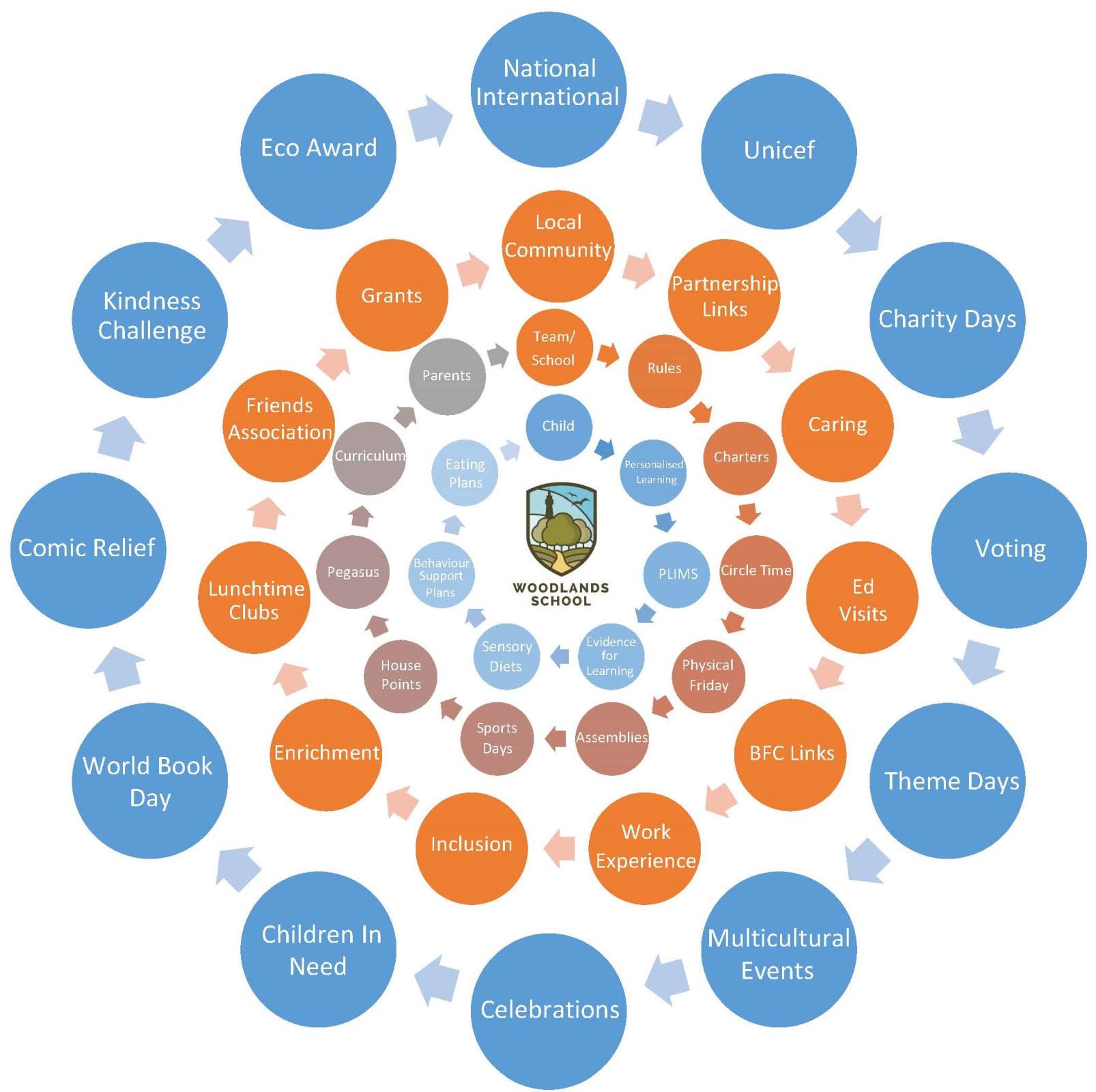SMSC
Spiritual, Moral, Social and Cultural
Woodlands School has a strong commitment to the personal and social development of all pupils. The school vision and values, put together by all the staff, supports spiritual, moral, social and cultural characteristics in all pupils.
What is SMSC – Spiritual, Moral, Social and Cultural development?
Here is a summary to explain SMSC – it is personalised for all our students in Woodlands:
Spiritual development is when we:
Explore beliefs and experience; respect faiths, feelings and values; enjoy learning about oneself, others and the surrounding world; use imagination and creativity; reflect.
Moral development is when we:
Recognise right and wrong; respect the law; understand consequences; investigate moral and ethical issues; offer reasoned views.
Social development is when we:
Use a range of social skills; participate in the local community; appreciate diverse viewpoints; participate, volunteer and cooperate; resolve conflict; engage with the 'British values' of democracy, the rule of law, liberty, respect and tolerance.
Cultural development is when we:
Appreciate cultural influences; appreciate the role of Britain's parliamentary system; participate in culture opportunities; understand, accept, respect and celebrate diversity.
In our school pupil’s SMSC development is seen for example in:
-
Taking part in a range of activities regarding social skills
-
Developing an awareness and respect for diversity
-
Developing and appreciation of theatre
-
Developing an understanding of right and wrong
-
Developing the communication skills to make choices about likes/dislikes in school then in wider community visits
-
Taking part in sporting opportunities
-
Taking part in cultural opportunities
-
Taking part in artistic opportunities
Assemblies
Assemblies give pupils an opportunity to explore aspects of SMSC.
Please click on the links below to view our assembly cycle:
Impact
In order to reflect further on the impact of all our work on SMSC:
-
We engage governors, families and community
-
Hear our student voice
-
Observe staff and pupil interactions
-
Support Social Behaviour
-
Complete learning walks reflecting on resources and practices
